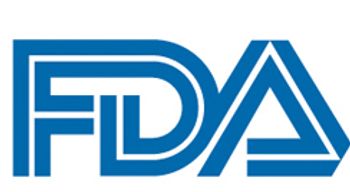Articles by Jason M. Broderick

The FDA has granted 2 Orphan Drug Designations to ALPN-101 for the prevention and treatment of acute graft-versus-host-disease (GVHD), according to Alpine Immune Sciences, Inc., the company developing the first-in-class selective dual T cell costimulation inhibitor.

The FDA has granted a Fast Track designation to the combination of the PD-1 inhibitor balstilimab and the CTLA-inhibitor zalifrelimab for the treatment of patients with relapsed or refractory metastatic cervical cancer.

The FDA has approved the CINtec® PLUS Cytology test as the first biomarker-based triage test for women whose primary cervical cancer screening results are positive for the human papillomavirus (HPV) using the cobas® 4800 HPV Test, according to Roche (Genentech), the manufacturer of the test.

The FDA has granted an orphan drug designation to umbralisib for the treatment of patients with follicular lymphoma, according to TG Therapeutics, Inc, the developer of the dual inhibitor of PI3K-delta and CK1-epsilon.

The antidepressant phenelzine showed antitumor activity in patients with biochemical recurrent castrate-sensitive prostate cancer, according to a pilot study conducted by researchers at the University of Southern California (USC).

The FDA has accepted a Biologics License Application (BLA) for a fixed-dose combination (FDC) of pertuzumab (Perjeta) and trastuzumab (Herceptin) with hyaluronidase, administered by subcutaneous (SC) injection in combination with intravenous (IV) chemotherapy, for the treatment of eligible patients with HER2-positive breast cancer.

The FDA has accepted a supplemental New Drug Application (sNDA) for niraparib (Zejula) for use as a frontline maintenance treatment for women with advanced ovarian cancer who responded to platinum-based chemotherapy regardless of biomarker status.

The FDA has granted tucatinib a breakthrough therapy designation for use in combination with trastuzumab (Herceptin) and capecitabine (Xeloda) for the treatment of patients with unresectable locally advanced or metastatic HER2-positive breast cancer, including patients with brain metastases, who had prior trastuzumab, pertuzumab (Perjeta), and ado-trastuzumab emtansine (T-DM1; Kadcyla).

A durvalumab (Imfinzi)-based neoadjuvant regimen induced a pathologic complete response (pCR) rate of 44% in patients with triple-negative breast cancer (TNBC), according to results of a phase I/II study presented in a poster at the 2019 San Antonio Breast Cancer Symposium.

Real-world clinical practice results for frontline palbociclib (Ibrance) indicate that the positive progression-free survival (PFS) data previously reported with the CDK4/6 inhibitor in the pivotal PALOMA-2 trial would likely translate to an overall survival (OS) benefit in patients with HR-positive/HER2-negative metastatic breast cancer.

The FDA has granted a priority review designation to a supplemental Biologics License Application (sBLA) for durvalumab (Imfinzi) for the frontline treatment of patients with extensive-stage small cell lung cancer (ES-SCLC).1

The FDA has approved acalabrutinib for the treatment of adult patients with CLL or SLL.

A label update from the FDA has approved a sBLA for romiplostim to include data demonstrating sustained platelet responses in adults with ITP.

Treating patients with HER2-positive metastatic breast cancer is difficult, and patients can fail multiple lines of direct treatment. But now, the FDA has accepted a supplemental new drug application for a combination treatment to help these patients failing multiple treatments.

The FDA has granted an accelerated approval to polatuzumab vedotin (Polivy) for use in combination with bendamustine and rituximab (Rituxan; BR) for the treatment of patients with relapsed/refractory diffuse large B-cell lymphoma (DLBCL) who have received at least 2 prior therapies.

The FDA has approved the R2 regimen of lenalidomide (Revlimid) plus rituximab (Rituxan) for use in patients with previously treated follicular lymphoma and marginal zone lymphoma (MZL).

The FDA has approved the PI3K inhibitor alpelisib (Piqray) for the treatment of postmenopausal women, and men, with HR-positive, HER2-negative, PIK3CA-mutated, advanced or metastatic breast cancer following progression on or after an endocrine-based regimen.

The FDA has granted a priority review designation to a supplemental new drug application (sNDA) for the R2 regimen of lenalidomide (Revlimid) plus rituximab (Rituxan) for use in patients with previously treated follicular lymphoma and marginal zone lymphoma (MZL).

The Food and Drug Administration approved TAS-102 (Lonsurf; trifluridine/tipiracil) for the treatment of patients with pretreated metastatic gastric adenocarcinoma or gastroesophageal junction cancer.

The FDA has approved cabozantinib (Cabometyx) to treat hepatocellular carcinoma in patients who previously received sorafenib (Nexavar).

The triplet of daratumumab (Darzalex), lenalidomide (Revlimid), and dexamethasone (DRd) reduced the risk of disease progression or death by 44% compared with lenalidomide plus dexamethasone (Rd) in newly diagnosed patients with multiple myeloma who were not candidates for high-dose chemotherapy and autologous stem-cell transplant.

The FDA has granted a priority review designation to atezolizumab (Tecentriq) for use in combination with carboplatin and etoposide for the first-line treatment of patients with extensive-stage small cell lung cancer (ES-SCLC).

The FDA has approved gilteritinib for the treatment of adult patients with FLT3 mutation–positive relapsed or refractory acute myeloid leukemia (AML).

The FDA has granted an accelerated approval to larotrectinib (Vitrakvi) for the treatment of adult and pediatric patients with solid tumors that have an NTRK gene fusion without a known acquired resistance mutation, are metastatic or where surgical resection is likely to result in severe morbidity, and have no satisfactory alternative treatments or that have progressed following treatment.

The Food and Drug Administration (FDA) has approved the use of brentuximab vedotin (Adcetris) in combination with chemotherapy for the frontline treatment of patients with CD30-expressing peripheral T-cell lymphoma (PTCL).

The Food and Drug Administration (FDA) has granted a breakthrough therapy designation to brentuximab vedotin (Adcetris) for use in combination with chemotherapy for the first-line treatment of CD30-expressing peripheral T-cell lymphoma (PTCL).

The FDA has granted a priority review designation to a supplemental new drug application (sNDA) for olaparib (Lynparza) tablets for use as a maintenance therapy in patients with newly-diagnosed, BRCA-positive advanced ovarian cancer who achieved a complete or partial response to standard frontline platinum-based chemotherapy.

The FDA has granted pembrolizumab (Keytruda) an accelerated approval for the treatment of patients with hepatocellular carcinoma (HCC) who have previously received sorafenib (Nexavar), according to Merck, the manufacturer of the PD-1 inhibitor.

The FDA has approved elotuzumab (Empliciti) for use in combination with pomalidomide (Pomalyst) and low-dose dexamethasone (EPd) for the treatment of patients with relapsed/refractory multiple myeloma following 2 or more prior therapies, including lenalidomide (Revlimid) and a proteasome inhibitor.

The FDA has approved pembrolizumab (Keytruda) for first-line use in combination with carboplatin and either paclitaxel or nab-paclitaxel (Abraxane) for the treatment of patients with metastatic squamous non–small cell lung cancer (NSCLC).












